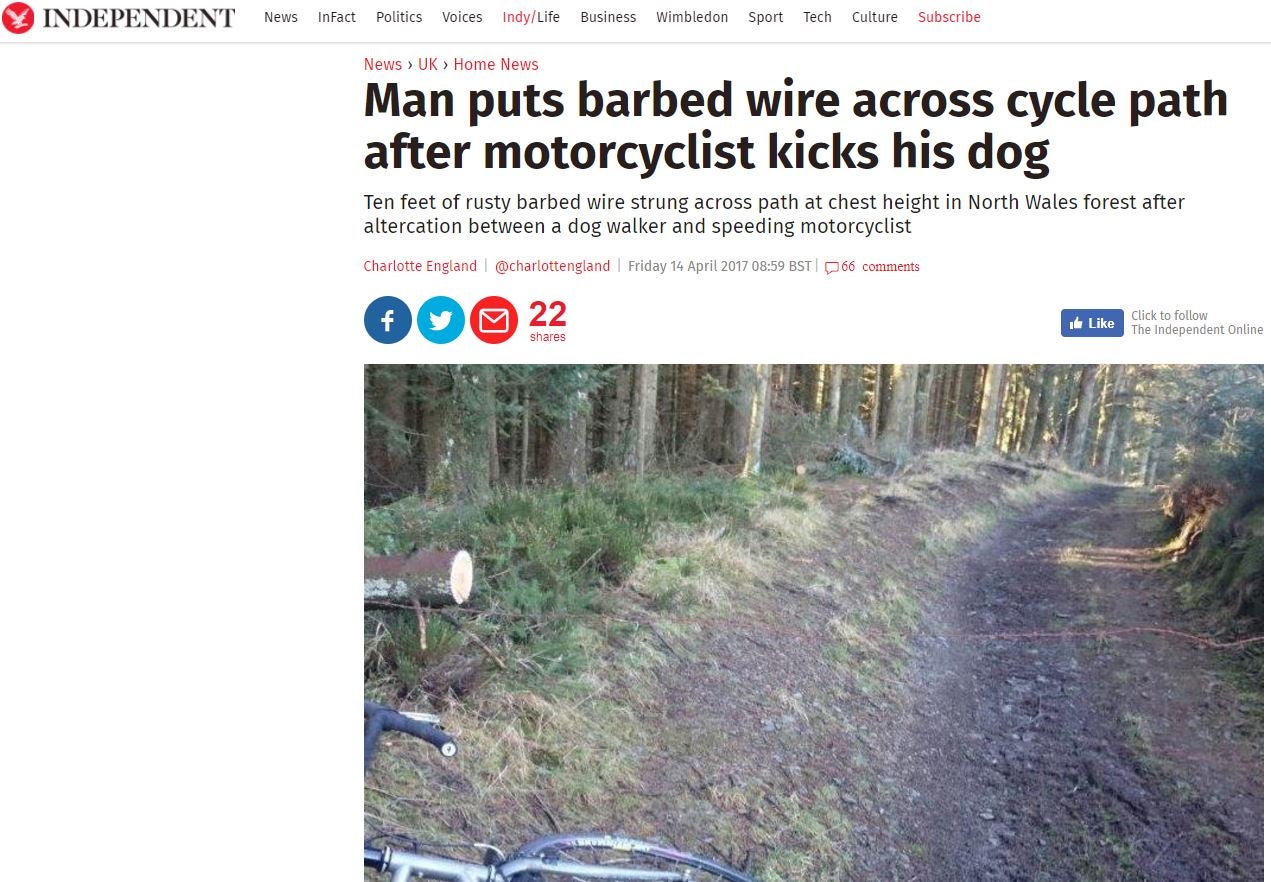
The Independent appears to have thrown caution and ethics to the wind by apparently lifting copy from another news organisation without payment or consent.
Its behaviour, highlighted in the Press Gazette yesterday , is usually associated with cowboy news agencies, rather than a respected national news organisation.
And there will be chaos and resentment throughout the media if other organisations follow its example.
The Independent has defended its decision to lift a story from Wales Online on the basis that “there is no copyright in news”.
If it genuinely believes that this the only criteria involved, then its staff may need to re-sit their NCTJ law exams, and also learn the basics of good subbing.
Let’s look at the legal position.
The Copyright Act 1988 says there is no copyright on news. But it also says that copyright does apply to the way news is selected and arranged, and also to the form of presentation. So, the Independent may have overlooked the fact that it should have at rewritten the original story more thoroughly.
If you compare Independent’s story with the original copy on Wales Online, you will see that it has published many quotes verbatim. In doing so, it may have committed a ‘substantial’ breach of copyright.
In 2010, the European Court ruled in the case International A/S v Danske Dagblades Forening that 11 consecutive words from a newspaper article could be protected by copyright.
You can see from the links above that the Independent has quoted more than 11 consecutive words, verbatim, from the Wales on Sunday on several occasions.
If it had wanted to use the story without rewriting it, it should have followed the Copyright Act’s rules on fair dealing. These allow you to use extracts concerning current events from another article, provided you give a suitable credit. However, in this instance, my view is that fair dealing could not apply. The number of extracts, and the proportion that they formed of the Independent’s article, appear to exceed allowable limits.
If the Independent plans to continue with this ‘plagiarise and be damned’ approach, it also needs to remember that persistently lifting facts from another media may be a copyright infringement – even if they are rewritten – because the original research involved skill, labour and time.
So, to me, the Independent’s legal position appears to be either naïve, uninformed, or based on ‘What can we get away with?’ At best, it is unprofessional.
It has also exposed itself to legal and ethical risks.
Any student doing an NCTJ course will tell you that you should never copy facts from other media without checking them – especially court copy.
The Independent apparently didn’t check if the original story was accurate and legally safe. If, for instance, Wales Online had made an error with the plea, or misspelt the defendant’s name and defamed someone, or breached a reporting restriction, then the Independent would have been liable, and would have had no defence.
I recall a similar situation some years ago. Newspaper A was copying stories from Newspaper B, without checking the facts.
Newspaper B eventually responded by publishing some fake stories, and was thrilled when Newspaper A copied them … and then had to apologise for them, amid great embarrassment and humiliation.
Hopefully, the Independent has made a simple mistake in this situation.
If not, it should prepare for a bumpy ride. Sooner or later, it will come a cropper – and deservedly.
And I suspect that any court will be unimpressed if it uses the ‘We hoped for the best’ defence in terms of its fact checking.
Cleland Thom runs online law courses at the College of Media and Publishing
Email pged@pressgazette.co.uk to point out mistakes, provide story tips or send in a letter for publication on our "Letters Page" blog
